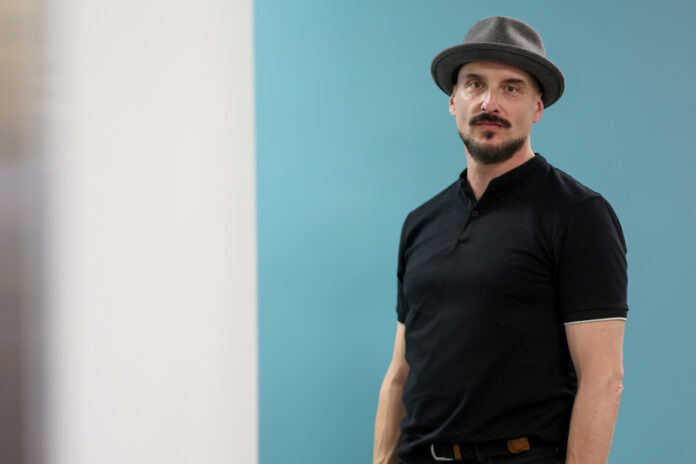Each of my 11 novels always starts from a personal concern. Vanishing Points starts from my observations on our current world, on our loss of bearings, on the whole debate which followed the election of [Donald] Trump and everything concerning the phenomenon of fake news. […] All this led me to ask myself questions about our perception of reality. And I didn’t want to address these questions in a contemporary plot because I don’t consider that I have the perspective to put them into perspective. The context of art, painting and false paintings already offers this metaphor and I found it interesting to take a step back from technology and to set the plot in a more disconnected world.
In the series with Victor Lessard, we are in an investigation cell and we follow an investigator who, with his partner Jacinthe Taillon, tries to elucidate crimes. Here the focus is different. Yes, there is Alice, who is our main character with her family, but there are also the antagonists, and this plurality of points of view makes it a choral novel. And that’s what I want to continue to showcase in the second and third volumes. Obviously, we have the famous theft at the Museum of Fine Arts and there is a character in there who will return. […] But Alice will continue to delve into this labyrinth and find her truth to escape the orbit that her parents have imposed on her life, against her will. We will also understand the path that the works stolen in 1972 have traveled.
It would be, in quotes, easier for me to continue to feed [this series] – and undoubtedly more reassuring for my writerly anxieties [laughs]! I wouldn’t question myself: will readers follow me? I have written six novels with Victor Lessard so far and I don’t want to burn this series by putting myself on autopilot. So if I decide to come back and write a story that features Jacinthe and Victor, it’s because I have something to say. For me, the greatest quality of a writer, a screenwriter, an artist is curiosity. And that’s what drives me. And there are stories that I want to tell that can’t be told from the perspective of this series.
I’ve been writing for almost 15 years. I did a master’s degree in law at a time when we were talking about the Internet as electronic highways. After that, I worked in information technology for around twenty years. It allowed me to meet lots of interesting people, to have stability; I had young children, it gave me a roof over my head, and it was intellectually stimulating. That being said, for a long time I thought that I was missing out on my life when I was caught in the whirlwind of this profession because I was writing on the side and I had this kind of conviction inside of me that there was something else; but at the same time, I realize today that these 20 years were so necessary. This is the entire toolbox that I have developed. I was a lawyer who drafted complex contracts, sort of big bricks with lots of technical annexes. The contract had to be properly attached because a misplaced comma could potentially cost your client tens of thousands of dollars. And that’s a bit like that, a detective novel, a thriller: a big mechanism where everything is connected and where you have to take care of the details.















